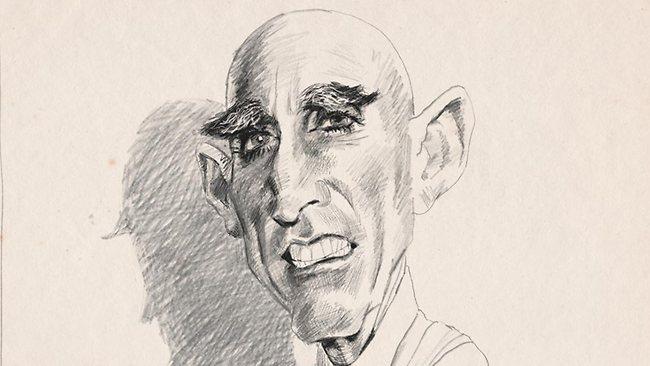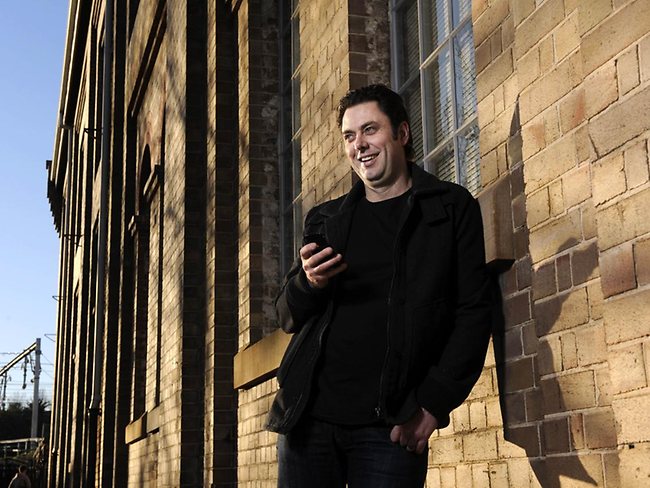Pressure test for NBN driver
AS the chief executive of NBN Co likes to point out, he is building the network on behalf of his client - the federal government.

HE might have more than $27.5 billion at his disposal, but Mike Quigley isn't at the top of the tree when it comes to the National Broadband Network. As the chief executive of NBN Co likes to point out, he is building the network on behalf of his client - the federal government.
While NBN Co is a vehicle for executing government policy, it is a massive vehicle and endows Quigley with unprecedented influence over Australia's information technology, from regulators such as the Australian Competition & Consumer Commission to equipment vendors, telcos and retail service providers.
By the end of last August the government had tipped in $2.16bn - just a fraction of the $27.5bn NBN Co is to receive, and is expected to pay back later with a return. That gives Quigley and his team a lot of pricing power - power they have already exercised when they suspended the cabling tender process last year.
Quigley's role is as an adviser, builder and operator. While the government has listened to much of his advice, Quigley hasn't always had his way, such as when NBN Co was directed to increase the number of interconnect points from 14 up to 121 in response to an industry backlash.
Over its lifetime the NBN Co will play three roles. The first is as an adviser to government on how to best execute its policy, while working with regulators to determine equitable arrangements for competitors, service providers and consumers.
The second, which is beginning, is the network build phase. At its peak, the NBN will pass 6000 homes a day. In the third phase, which is also beginning, NBN Co will play the role of a wholesale telecommunications provider.
"It is quite complex and there are a lot of issues to think about in all of that," Quigley says. "And at the same time, we have become something of a political football."
The latter comment is not surprising. The NBN was one of the clear differentiators between the parties at the last federal election, and remains a divisive point today. With so much money at stake, emotions have run high on how it should be spent - or whether it should be spent at all. That has led to an unparalleled level of scrutiny. "It hasn't changed much of what we've done in the company," Quigley says. "Right from day one we had a mantra that every dollar we spend is taxpayers' money, and therefore we have to spend it very prudently. We expect to have a high level of scrutiny, and a high level of scrutiny is important on a project like this. The only thing we are a little disappointed about is clearly that scrutiny has morphed into some political agendas, and we do have to deal with a lot of misinformation."
Quigley himself has withstood a withering level of personal scrutiny. There was controversy over how he did not flag with the Australian government a five-year US government investigation into Alcatel regarding corruption in its Costa Rican subsidiary when he accepted the top job at NBN Co.
While there was never any suggestion Quigley, who was in charge of Alcatel's North, Central and South American operations from March 2001 to January 2003, was at all involved in or knew of the corruption, he later regretted not raising the US investigation with the government before his July 2009 appointment as NBN Co chief executive. Quigley was not named in the US government claim in the case and was never interviewed by US authorities.
Outside the political realm, it is difficult to find anyone with less than a kind word to say about him.
Communications Alliance chief executive John Stanton says it takes a rare talent to maintain momentum, focus and composure in Quigley's position. "Mike has been asked to undertake Australia's biggest infrastructure project in the most trying of circumstances - confronting myriad technical, financial, policy and political challenges, under intense public scrutiny," he says.
"The NBN is a genuine game-changer and Mike's contribution to the Australian future will in days to come surely be recognised for its significance."
Similarly, telecommunications analyst Paul Budde describes Quigley's determination to build the NBN as inspiring. "If anybody in the world can build this network, it is Mike," Budde says.
Indeed, if Quigley could change anything, it would be to move the debate on to focus on how to harness the transformational powers of the network. "It has the potential to have quite a profound impact on both business and the way people live," Quigley says.
The NBN is at least partly responsible for up to $1.1bn in investments in data centres, he says. And with service providers competing on the same NBN infrastructure, consumers may even receive a higher level of customer service.
But all of that lies outside the NBN Co's control, as it settles into its role as a faceless wholesale network.
Mike Quigley might be the most influential man in the Australian technology sector today but, should he still be running the NBN Co when the network is finished, it is quite likely that most Australians won't even know he's there.



